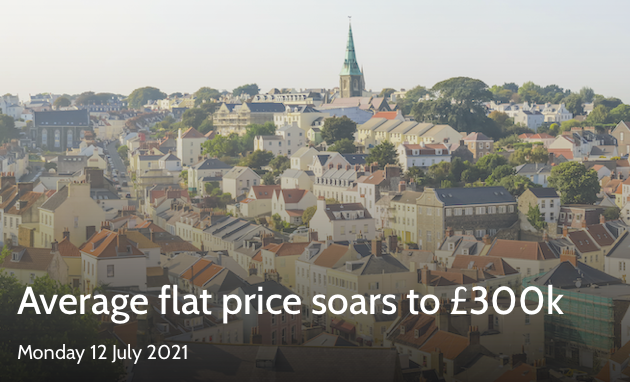


Guernsey's "exploding" housing crisis needs bold solutions and could be substantially solved by phasing in high levels of stamp duty or short-term capital gains tax for property speculators, writes Nicholas Mahy.
"The property market culture in Guernsey is one where rising property values are widely seen as good for the community.
However, while rising property values are particularly good news for estate agents and property speculators, as exhibited by the slightly complacent tone of this article, for the community as a whole these inflated values are a disaster in respect of Guernsey's exploding housing crisis. High property values cause impossible monthly rents for many, and are the main cause of rising recruitment difficulties and costs in the hospitality and care sectors.
In these times of such low returns on bank deposits, investment in domestic property for rent is a bonanza, even when taking into account ridiculously high rental market management fees. A significant number of non-resident landlords are attracted into this market, exacerbating the problem.

Surely a primary responsibility of any government must be to guarantee the welfare of its citizens by providing or enabling proper shelter (housing). But the words heard from politicians are all about building more houses - where? and on what time scale? The main benefits from any new housing developments, big or small, will be received by builders and property developers, and the outcomes will only serve to force even higher property values, and therefore an even worse housing situation.
Bold solutions are needed. Perhaps the problem could be substantially solved by phasing in high levels of "stamp duty" and/or "short-term capital gains tax" on 1. properties sold/purchased by corporations (registered anywhere, including Guernsey), 2. non-resident purchasers, and 3. properties purchased as second homes.
By "high levels" I mean levels that discourage speculation completely in some circumstances - not 5% or 10% of transaction value, but 30% or 60% - real disincentives, for the benefit of the community. A 40% or 60% direct tax on domestic rental income might also serve. Did I hear that the States of Guernsey need to raise significantly more cash in the forthcoming years?
I recognise that my suggestion will not be welcomed by people with power in Guernsey, least of all by property market professionals, owners of high-value property, and their friends in the States."